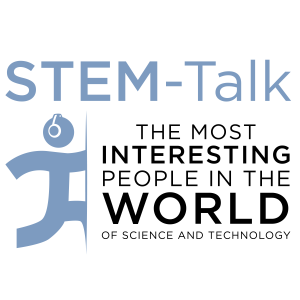
Episode 99 : Dave Rabin talks about how psychedelics and wearable devices can help improve people’s lives
 2019-11-26
2019-11-26
Download
Right click and do "save link as"
Dr. David Rabin is the chief innovation officer and co-founder of Apollo Neuroscience. He also is the co-inventor of Apollo, a wearable device designed to improve focus, sleep and access to meditative states by gently delivering layered vibrations to the skin.
Dave is a board-certified psychiatrist and translational neuroscientist who for the past decade has been studying resilience and the impact of chronic stress on humans. He received his MD in medicine and Ph.D. in neuroscience from Albany Medical College in Albany, New York. He trained in psychiatry at Western Psychiatric Institute and Clinic at the University of Pittsburgh Medical Center.
Dave also has organized the world’s largest controlled study of psychedelic medicines and is well-known for his research into MDMA and its potential to treat posttraumatic stress disorder along with other disorders.
Show notes
[00:03:06] Dawn opens the interview mentioning that David grew up in California and asking him about an insatiable need he had as a child to understand why people were the way that they were.
[00:04:18] David talks about how the vivid and frequent dreams he had as a child played a role in his decision to study consciousness and neuroscience.
[00:07:33] Dawn mentions that in high school Dave told his father that he wanted to study consciousness; however, Dave’s father suggested that he study something more tangible and quantifiable instead. Dave explains how this led him to spend the summer between his junior and senior year of high school at Rockefeller University.
[00:12:08] Ken asks why Dave decided to move across the country to Albany Medical College, where he received his MD in medicine and Ph.D. in Neuroscience.
[00:14:01] Dave gives an overview of the research he did, while working on his Ph.D., in emotional salience and how people interpret different stimuli as either threatening or safe. An area of research informed by his reading of evolutionary psychology, and the study of touch as an evolutionarily conserved stimulator of the safety pathway.
[00:17:58] Ken asks about how Dave decided to go into psychiatry at Western Psychiatric Institute and Clinic at the University of Pittsburg Medical Center, where he focused on treatment-resistant mental illnesses.
[00:20:47] Dawn mentions Dave’s work with Greg Siegel. Dawn asks about this work and how it led Dave to become serious about studying consciousness, altered states of consciousness, and the potential use of these altered states to facilitate healing.
[00:24:26] Ken talks about MDMA, or 3,4-Methylenedioxymethamphetamine, a psychoactive drug commonly known as ecstasy or molly. He explains that MDMA has been shown to facilitate the release of oxytocin, which increases levels of empathy and closeness while dampening fear-related amygdala activity. This results in an overall decrease in stress response and social anxiety. Ken asks Dave to talk about MDMA’s potential to treat PTSD (posttraumatic stress disorder) along with other disorders.
[00:27:37] Ken asks if Dave has seen any improvements in heart rate variability (HRV) post MDMA treatments.
[00:28:37] Dawn mentions that Dave is part of the world’s largest controlled study of psychedelic medicines. She goes on to explain that these medicines, like LSD and MDMA and even psilocybin, which comes from mushrooms, were used to treat mental and emotional trauma from the 1950s to the ‘70s. Due to the abuses that occurred during this time, the use as well as research on psychedelic medicines in U.S. were shut down. With a shift towards a renewed interest in these medicines, Dawn asks about this study and if Dave could give a background on psychedelic medicine.
[00:32:34] Dave talks about the epigenetic trial, being conducted in phase three of the MDMA study, where DNA samples are collected before and after use, to determine the epigenetic regulation of stress-response genes.
[00:41:30] Ken asks about psilocybin,
view more
More Episodes
012345678910111213141516171819
Create your
podcast in
minutes
- Full-featured podcast site
- Unlimited storage and bandwidth
- Comprehensive podcast stats
- Distribute to Apple Podcasts, Spotify, and more
- Make money with your podcast
It is Free
- Privacy Policy
- Cookie Policy
- Terms of Use
- Consent Preferences
- Copyright © 2015-2024 Podbean.com



